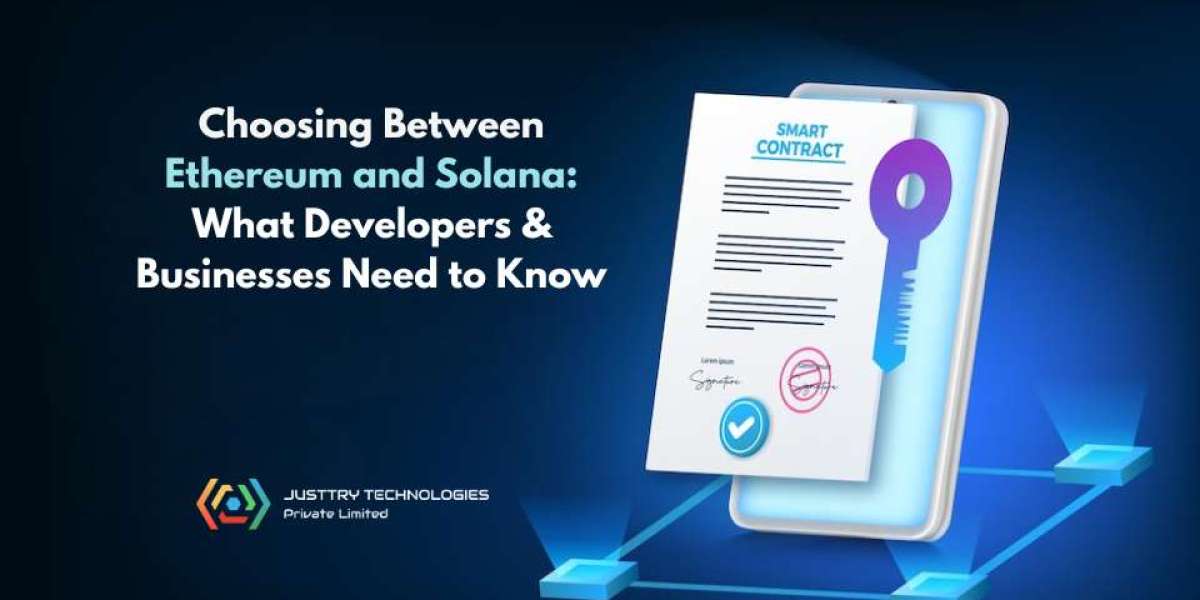Blockchain has redefined how digital systems work — bringing decentralization, transparency, and trust into the heart of applications. For any smart contract development or dApp development, the platform you choose is critical. Two leading contenders in 2025 are Ethereum and Solana. Each offers unique strengths that suit different business goals.
Smart Contracts and Their Use Cases
Smart contracts are self-executing code that automates agreements when predefined conditions are met. They power decentralized finance (DeFi), NFT marketplaces, gaming economies, DAOs, and more. But performance, cost, and scalability all depend on the blockchain platform behind them.
Ethereum Overview
Ethereum, launched in 2015, pioneered smart contracts and remains the most widely used platform. It operates on the Ethereum Virtual Machine (EVM) and uses Solidity, a beginner-friendly coding language. Ethereum has a strong ecosystem covering DeFi, NFTs, and enterprise apps, and benefits from vast community support and regulatory recognition. Its recent upgrades include Layer 2 scaling solutions like Arbitrum and zkSync, which help reduce congestion and fees.
Solana Overview
Solana, launched in 2020, is known for speed and low transaction costs. It can handle over 65,000 transactions per second and uses a combination of Proof of History and Proof of Stake. Developers typically use Rust or C++, offering more power but requiring deeper expertise. Solana’s ecosystem is rapidly expanding in areas like NFTs, DePIN, and mobile payments.
Developer Experience & Business Factors
Ethereum offers a smoother learning curve with well-documented tools such as Truffle and Hardhat. Solana’s tools are evolving but reward experienced developers with high performance. In terms of cost, Solana is significantly cheaper, while Ethereum can be expensive during peak usage. However, Ethereum wins in areas like mature security auditing and regulatory clarity.
Conclusion
Both Ethereum and Solana have strengths. Ethereum is stable, trusted, and well-supported, making it ideal for projects requiring high security and regulatory compliance. Solana is great for fast, low-cost, scalable dApps.
Looking for Expert Support?
Justtry Technologies is a trusted smart contract development company offering custom blockchain solutions. Whether you're building on Ethereum, Solana, or both, our skilled web3 smart contract developers help bring your vision to life. Make the smart choice — choose Justtry Technologies for your next blockchain project



